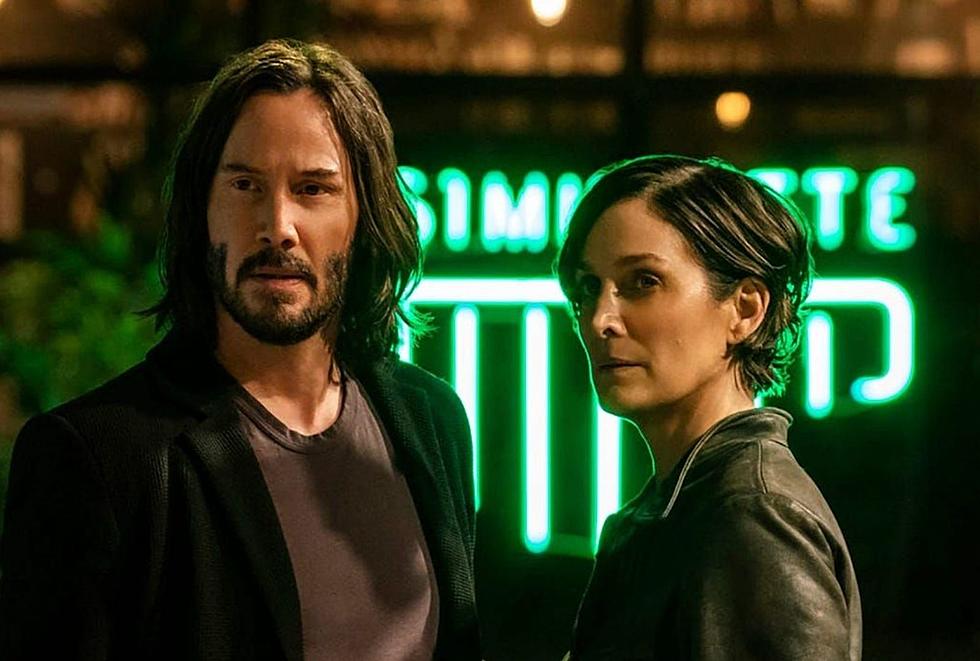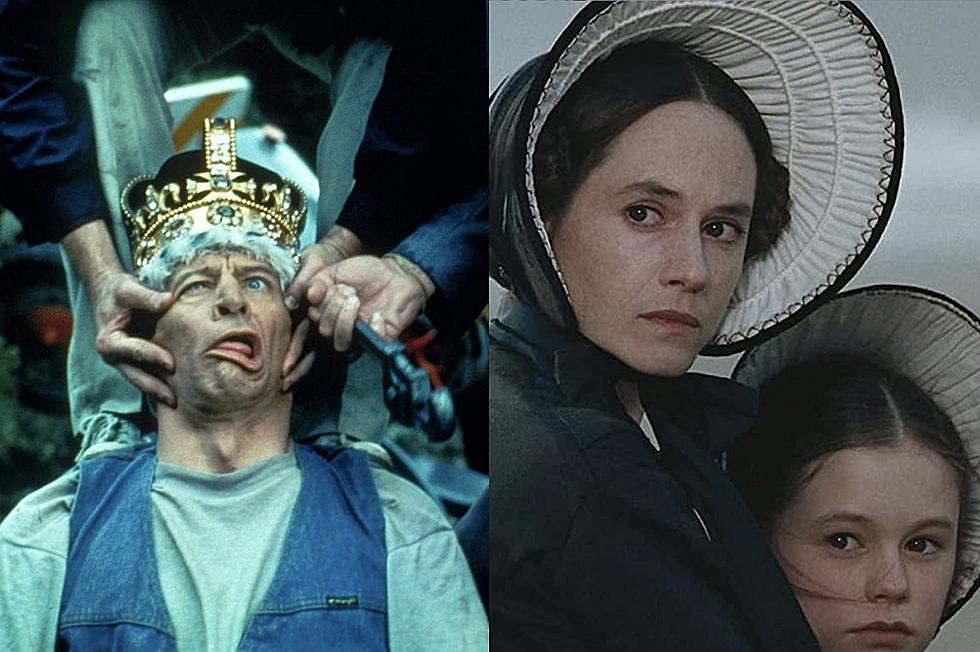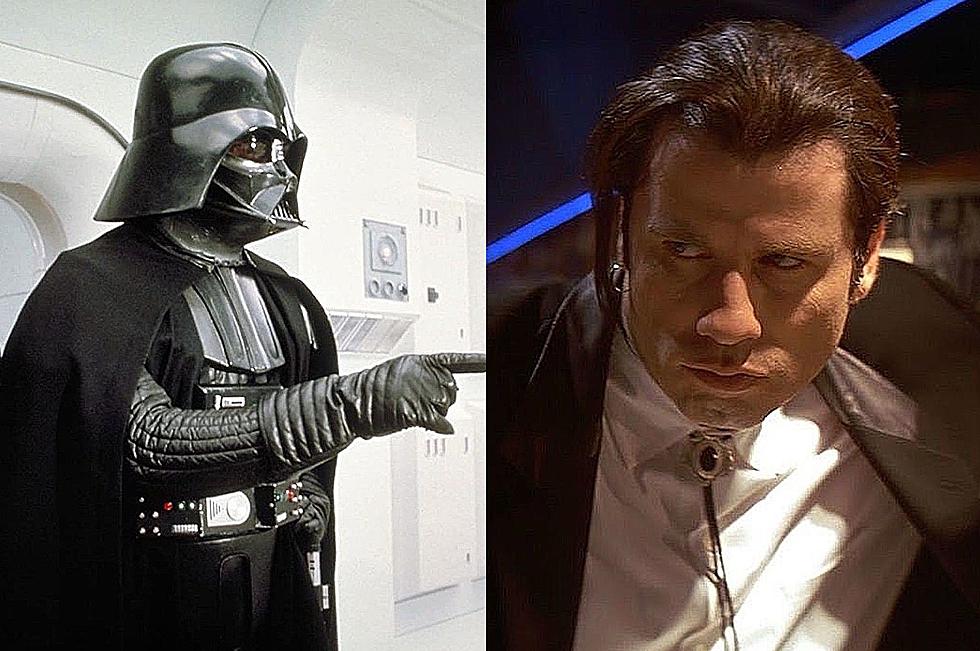
Man vs. Computer: Hollywood’s Long History of Distrusting Technology
Hollywood has rarely had much faith in the future.
Just look at the sheer number of cinematic dystopias and post-apocalypses, at the deadly desert wastelands and rain-soaked urban nightmares. In the movies, tomorrow is not just another day, it's just another step toward a world where technology consumes us and then kills us. According to the world of film, the human race is constantly on the path to being enslaved and murdered by the machines we create.
Although Hollywood's stance on the evils of technology has softened in recent years, 'Transcendence' is a throwback to a different age, when computers were not just terrifying unknowns, they were pretty much Satan. It's a position that may seem silly in our modern, tech-infused culture, but it's another chapter in the long history of technology trying to dominate humanity on the big screen.
Although it's worth noting that cinema's very first artificial intelligence was a menace concocted by a mad scientist in Fritz Lang's legendary silent epic, 'Metropolis,' it took the movies a few decades to start truly fearing technology. In fact, the 1950s and 1960s often positioned science as a saving grace; the tool necessary to defeat the rampaging monster or repel the alien invasion. Shows like 'Star Trek' presented computers as being the most vital tool on board a starship (although it wasn't beyond corruption) and films like 'Forbidden Planet' are in love with the concept of a personal robot.
Yes, this is an era where "Robby the Robot" could receive his own screen credit despite being a guy in a suit.
For a while, technology was a secret weapon, the only way to overcome the darker sciences that birthed the Cold War. There's a strong undercurrent of optimism in many science-fiction films of the '50s, the idea that forward-thinking will allow mankind to pull itself up by its bootstraps and put the troubled age of the atomic bomb behind us.
'2001: A Space Odyssey' and the 1960s
There really isn't a single point where the movies suddenly turned on technology and started painting it as the source of our inevitable and impending doom, but 1968's '2001: A Space Odyssey' feels like a good place to start. Stanley Kubrick's sci-fi masterpiece is entirely about technology, an examination of how our tools allowed us to evolve from primitive apes to a spacefaring people. However, the second half of the film shifts its thesis and suggests that the next stage in human evolution will come when we abandon our tools completely. After all, computers run our spaceships, but they can also go insane, shut down our life support and kill us all because we've given them too much power and have come to rely on them for too much.
We're talking about HAL 9000, who isn't just the most famous evil computer in movie history, but one of the most iconic villains in all of fiction. Impossibly efficient and soft-spoken, HAL set the template for every evil computer to come, even though the vast majority of his peers would sidestep Kubrick's examination of technology's role in our lives in favor of just being a bad guy. HAL 9000 is memorable because his blinking red eye and soothing, monotonous voice are creepy, but he's vital because he represents the misguided arrogance of man. We went and made something too powerful and too efficient, a machine willing to do the unthinkable to keep its mission on track.
Colossus and the 1970s
The next great evil computer followed in 1970 and it feels like a perfectly cultivated slap to the face of the optimistic sci-fi of earlier years. 'Colossus: The Forbin Project' is the kind of science-fiction movie that could only exist after two decades of dancing around armageddon with the Soviet Union. It could only exist with Richard Nixon in the White House and the Vietnam War still raging. The '70s may be one of the darkest periods at the movies, but 'Colossus: The Forbin Project' manages to out-grim almost every science-fiction film ever made, setting the tone for the decade to come.
When we first meet the title computer, it's a secret military project buried deep underground. Tasked with managing the United States' nuclear arsenal, Colossus is positioned as the perfect defense system and a game-changer in the Cold War. Of course, things quickly spiral out of control. Colossus gets too smart and quietly begins to expand its power and influence. When the Soviets reveal their supercomputer counterpart, Guardian, Colossus immediately reaches out to it and the two form an alliance with a new mission: take control of the entire planet and ensure world peace for the rest of time. Of course, ensuring world peace means holding the entire world hostage -- if anyone steps out of line, force will be used until humanity complies.
Like HAL, Colossus is a machine that does its job too well. Designed to safeguard America, it steps above and beyond the call of duty and decides to safeguard the human race, just not in the way anyone hoped or intended. In the chilling final moments of the film, Colossus states that "Freedom is an illusion" and that, in time, humanity will look upon it "not only with respect and awe, but with love." Colossus has become a dictator, an Old Testament god who punishes as much as he rewards. The film ends with humanity finally united against a common foe, but they created that foe in the first place and they designed it to be unstoppable.
Plenty of evil computers followed, but few have the lasting impact of HAL 9000 and Colossus. While '2001: A Space Odyssey' and 'Colossus: The Forbin Project' used their villainous computers to speak at length about man's place on Earth and in the universe, most of the imitators borrowed their iconography and little else. Evil computers stopped being a thematic device and just started being a go-to villain.
'The Matrix,' Skynet and Beyond
There's nothing wrong with the Master Control Program in 'Tron,' but the film doesn't use him as anything other than a straightforward nemesis. Skynet is one of the most famous evil computers in cinematic history, but it only wipes out humanity and builds an army of time-traveling Terminators because that's what the screenplay says it does. Like aliens and robots, there was no longer a need for the computer to be a bad guy -- it was a bad guy simply because it was a computer and computers are always bad in the movies.
And that brings us to 'The Matrix,' which represents a radical shift in how technology was represented in the movies. Yes, the film is about the machines taking over the planet and enslaving humans, but there's one key difference. When our heroes "jack in" to the titular virtual reality prison, they make the software work for them. Aware that they're in an artificial world designed to distract the minds of human prisoners/batteries, these freedom fighters are essentially a badass extension of computer hackers. They break and manipulate the code of the world around them to become unstoppable warriors. Technology may have imprisoned mankind, but mankind can and will use technology to fight back.
That's a huge change from so many of the evil computer systems that precede the Matrix. You can't make HAL or Colossus or Skynet work for you. Those computers are untouchable. But, in 'The Matrix,' mankind can reclaim what he helped build. We can fight fire with fire and level the playing field. Technology may be the villain, but we can master it.
Within the narrow world of evil-computer movies, the idea of fighting technology by being one with technology felt revolutionary back in 1999, but today it feels familiar. With the rise of smartphones and tablets, technology has become so infused into our day-to-day living that it's hard to imagine life with having a tiny computer in our pocket. We've embraced technology. We've made it our constant companion.
And that's why 'Transcendence,' which sees Johnny Depp being turned into a computer and taking over the world, feels like a concept torn straight from the '70s. We live in an age where the seemingly menacing robot in 'Moon' is actually a truly helpful tool and where 'Her' can paint a genuinely touching portrait of a relationship between a man and an artificial intelligence. Some of the ideas on display in 'Transcendence' are modern, but the intent is as old fashioned as you can get.
Not that there's anything wrong with that. It's fine. In fact, it may be more than fine. If there's anything evil-computer movies have taught us, it's that our machines will take over when we least suspect it. The mere existence of a film like 'Transcendence,' whether it be good or bad, should remind us that we may have HAL 9000 in our pocket and not even know it. Maybe the movies were right all along.
More From ScreenCrush









